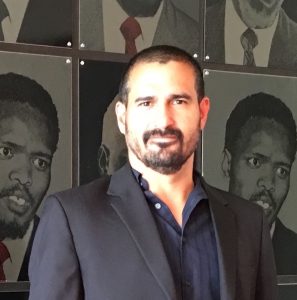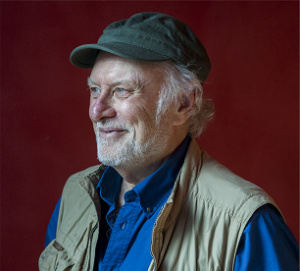A PANEL DISCUSSION ON
DECOLONIZATION/DECOLONIALITY, PART 7

Photo: Professor Julia Suaréz-Krabbe
Decolonization and Decoloniality: Aggregating the Thoughts of Julia Suaréz-Krabbe, Nelson Maldonado-Torres, and Walter Mignolo
(This is the final interview report with a Panel on Decolonization/Decoloniality. For the transcript, see YouTube https://youtube.com/watch?v=WG0wn62xjtc.
Although there have been continuous efforts in the past couple of centuries to deal with the multi-dimensional issues of segregation and discrimination spread widely within human societies, there is no denying that at their core, humans — although social beings — are too fixated on grade and classification. Understandably, grading and classification help us make sense of the world in many ways. However, we are only striving and are still very far away from reaching the social goal of eliminating segregated classification in our interactions as members of a social group.
By default, humans can promote inequality and find it difficult to conceptualize equality. Similarly, several humans do not object to forms of inequality — so long as they are not at the receiving end of it. That is not to say everyone who has stood up to fight against inequality was at the receiving end but to show that inequality as a social concept is ingrained in the primal fibers of humanity. This belief in the concept of humanity manifests mostly through gender and racial inequality, so much so that with the advancements in the campaigns against misogyny, sexism, and racism, there are still humans who harbor such concepts and discriminate against other humans based on their race and sex.
Born during the Colombian war, Professor Julia Suaréz-Krabbe’s first-hand experience of the war, the efforts made by some to stop the war, and the decision of some others to not desist from fighting served as part of the foundation of her knowledge of human societies and why some people choose to not stand against war, inequity, and injustice. So much is said about the superiority of the human race to all other forms of life and existence on earth; so much is said about humans’ unique ability to be empathetic toward the plight of others; yet, we see insensitivity, racism, sexism, misogyny, and discrimination on a large scale.
When all these seemingly malignant social issues are interrogated, one discovers that the baseline push for such reactions to other humans is mostly founded on three things — the inability to be in other people’s shoes and view matters from their point of view; the selfishness of humans that makes them far removed from issues that do not directly affect them; and the innate and primal desire to rule over others, exert power and influence, and trample on others to show superiority and assert dominance.

Photo: Professor Nelson Maldonado-Torres
When this realization is used to interrogate colonialism as a concept and colonization as a historical occurrence, we will find the baseline motivation to be a belief in inequality, which in turn fueled the belief that the world was for the Europeans to conquer. At the foundation of colonization is inequality, at least, a belief in the inequality of races — a belief in the superiority of the Global North over the Global South. Therefore, the decolonization process and campaigns must also be fueled by the desire to obliterate inequality.
To fully understand the depth of colonialism and the extent to which its effects have affected previously colonized countries, it is vital to note that colonialism was a multi-faceted happening with political, religious, social, cultural, and semiotic influences. All these facets of colonization were blended and uniformly executed to cause a lethal and destructive control of continents that has morphed into neo-colonialism and continued control, even after the official declaration of independence in previously colonized states. In his study of the semiotic aspects of colonialism, Professor Mignolo examined the colonization of languages, memory, and space.
These three forms of colonization are lethal in that, when united, they serve as a potent way of depriving the people of their voice and conscious thinking. Colonization of languages — which resulted in the banishing of indigenous languages to the vernacular status — took away part of the ability of the people to think of, interact with, and make sense of the world in their mother tongues, thereby also leading to a huge gap in the transmission of culture through generations, and a gradual loss of sense, self, and identity.
Why should Europe bother itself with decolonization and decoloniality? For Professor Julia Suaréz-Krabbe, the participation of Europe in the decolonization and decoloniality discourse cannot be removed because total liberation and decolonization — whereby some institutions support conversations on the two concepts — cannot happen without the European people, the indigenous people of Europe. She also posits that since coloniality is a global structure, thereby making decoloniality and decolonization a global project, it is vital that everyone participates in the decolonization discourse and process.

Photo: Professor Walter D. Mignolo
When we examine and seriously consider the multi-dimensional negative impacts of coloniality on Africa, the Caribbean, and Latin America, we begin to understand the importance of championing the movement of decoloniality and decolonization. As Professor Mignolo said, it is understandable that some would focus on the deed rather than the label and may not necessarily identify themselves with the movement. However, everyone who is invested in reshaping thoughts and approaches to thinking in a way that rolls off the colonial mindset is already contributing to the decolonization and decoloniality movement.














You must be logged in to post a comment.